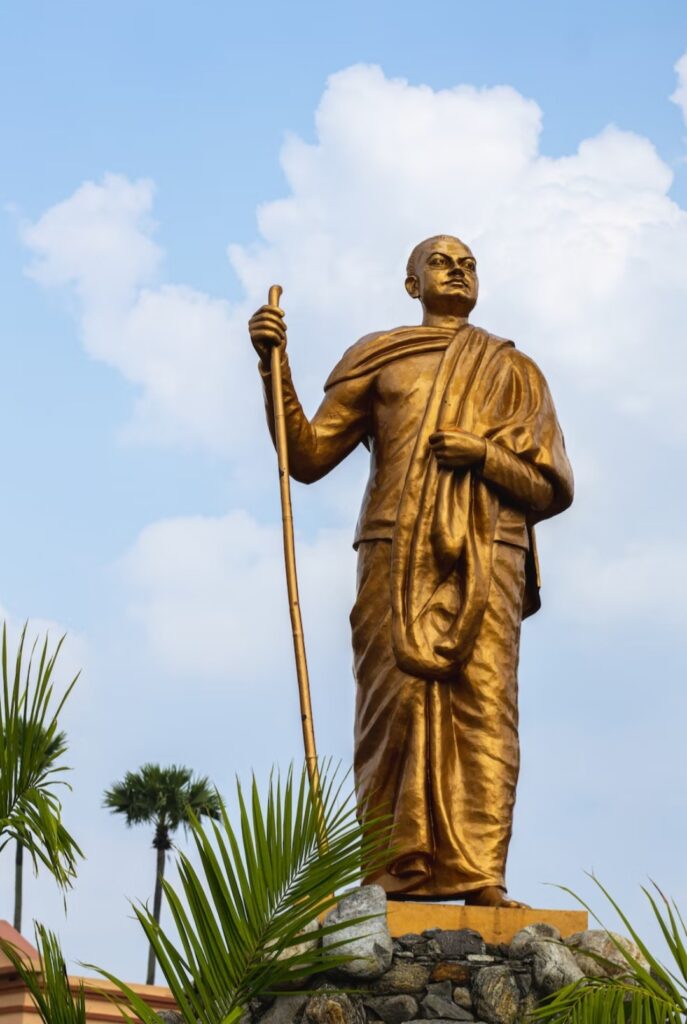Jaratkaru Places a Condition for Marriage

Table of Contents (The Complete Mahabharata in Simple English)
Previous Post: The Pitris Explain the Allegorical Meaning of the Rat and the Single Cord of Root
| Note: In the previous post, Jaratkaru’s ancestors explained the allegorical meaning of the single cord of Virana root, the rat, and their unfortunate state in which they were hanging upside down. In this post, we will read how Jaratkaru agreed to get married and the condition he placed for the same. |
Hearing his ancestors’ words caused tears to come into Jaratkaru’s eyes. He said, “O my ancestors, I am that sinful Jaratkaru who has caused you grief. Either punish me for my sinful deeds or tell me what I can do to reduce your woes.”
The pitris replied, “O child, it is good fortune that you have come to this place. Tell us, why have you not married?”
Jaratkaru said, “O pitris, for a long time, I have had the desire to enter the higher realms of existence with this body. However, that is only possible if I control and raise my sexual energy. This is the reason I decided to practise brahmacharya. But I have changed my mind after seeing your suffering, O grandsires. I will certainly marry and have a child for your welfare. The child will be the cause of your freedom and you will live without fear in a state of ananda, forever.”
After agreeing to marry for the sake of his ancestors, Jaratkaru placed some conditions for his marriage. He said, “I will marry if I meet a maiden whose name is also Jaratkaru and if she marries me of her own free will with the understanding that I will not be able to take care of her needs. I will marry only if I meet such a maiden, otherwise, I will not marry.”
| Note: I found it very interesting that Jaratkaru placed a condition for getting married. Even though he felt great sorrow for his Pitri’s plight and wanted to help them, he understood that getting married and entering wordly life would take him away from his desired path of entering the higher realms without giving up his body. I want to stress on the word ‘desire’ because it gives us an understanding that desires come in many forms, and the desire (or aspiration) that comes from one’s own soul is one’s swadharma, and that is not to be abandoned for anyone’s sake. By putting the condition for marriage, Jaratkaru ensured and aspired for a solution that would end his Pitri’s suffering without abandoning his swadharma. Also, the condition that he would only marry a lady who willingly married him knowing that he would not be able to care for her needs, ensured that the lady he married would not be in the dark about what to expect. I believe he was hoping that a lady who was also marrying primarily for progeny (for reasons of her own) would marry him. Finally, his condition that the maiden he marries should also have the same name, Jaratkaru, seems to be divinely inspired since he was fated to marry Vasuki’s sister, Jaratkaru, because their son, Astika, would save the noble serpents, from his mother’s side of the family, in Janamejaya’s snake sacrifice. In the next post, we will find out how Jaratkaru finds his wife |
Table of Contents (The Complete Mahabharata in Simple English)
Next Post: Jaratkaru Finds His Wife
